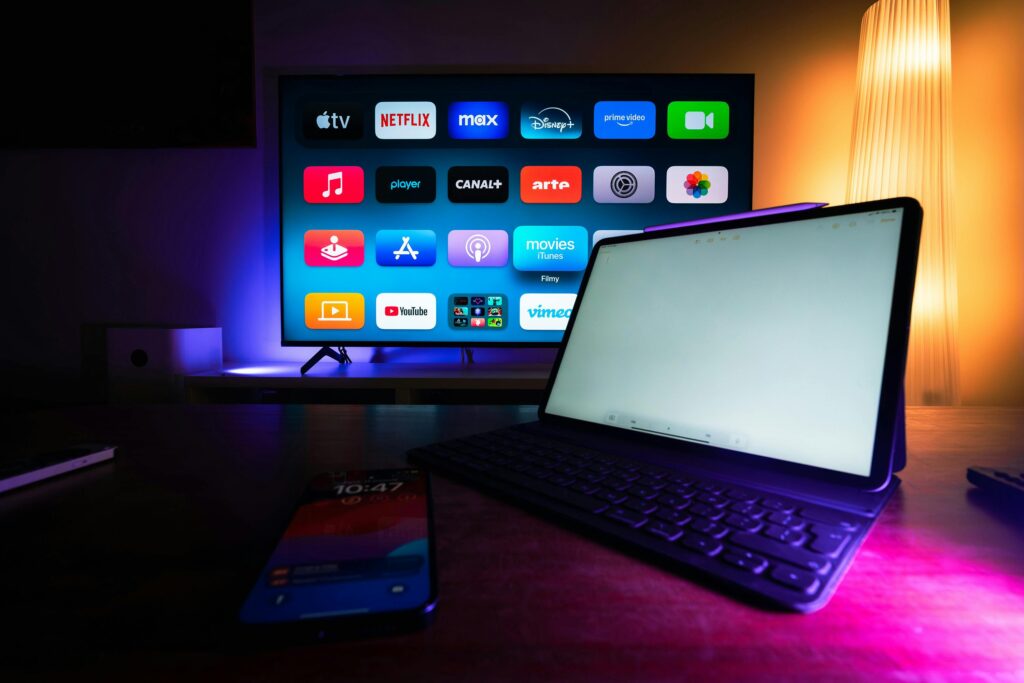10 Financial Health Resolutions You Need for the near year
10 Financial Health Resolutions you need for the near year






Today we will discuss 10 financial health resolutions you need for the near year. Common New Year’s resolutions include exercising (for weight loss and/or health), eating healthier, and saving money.
It’s important to not only create but to periodically reappraise your financial resolutions. This does not have to just be for the start of the new year. New Year’s resolutions have a bad reputation for inevitably failing. There is this momentum beginning January 1st but then, at some point it fizzles out. Many people give up on these resolutions within the first two weeks of the year. The second Friday in January is therefore known as “Quitters Day”. The good news is that there is an attempt. Take that same motivation you have on January 1st and keep that same energy year round.
To help with that, I’ve comprised a list of 10 financial health resolutions you need for the new year.
Budgeting
Creating a budget is the overall guide to manage how you spend your money. You can be your own little CPA. Budgeting will help you delay gratification, spend less on things you don’t actually need, and curb impulse spending.
Check out these free budgeting resources to get you started on a plan.
Banking
We live in a digital world now. Brick and mortar banks do still exist and they absolutely do still serve a purpose for some people, but the majority of people who do basic banking (and who have the technical literary) do not need to be confined to to a physical bank. Many physical banks charge lots of fees. It can be fees to purchase checks, overdraft fees, minimum balance fees, etc. That’s a way to help them make more money, while already using your money. This is already a fair trade. You keep your money in their bank for protection, therefore utilizing a service they provide to you. The bank in return, has access to use your money for other purposes such as loaning money.
Many online banks nowadays offer bank accounts with no fees. You can often get free certified checks if needed, there are no overdraft fees, and some banks have no minimum balance requirement. This keeps more money in your bank account and less being paid to the bank. Many online banks also have a higher interest rate than many physical banks due to lower operational costs. Many good online banking options are Discover, Ally, and SoFi to name a few. If you are considering switching to an online bank, do you research to see what benefits are right for you.
Eliminate Debt
This also is easier said than done but it is a vital step in increasing your overall income. The sooner you pay off debt, the more disposable income you will have because you are no longer using it to pay off debt. I would recommend using any disposable income you have to save towards specific goals or to invest it if you have no immediate need for it. But really accepting accountability for how you got into debt (not enough income, overspending on wants, etc) and how you can change that pattern. You don’t want to be paying off debt for the rest of your life. You have more important things to do with your money, such as improving your life now and securing your future (and let’s not forget about the future of your decedents for generaltional wealth).
“I have a deeply hidden and inarticulate desire for something beyond the daily life.”
Virginia Woolf
Emergency Fund

As with many things, life is full of unforeseen and unfortunate events. It could be a job loss or a huge repair bill. This is why building up an emergency fund is important. Many financial experts recommend saving at least 6 months of expenses. This is under the assumption that it could take that amount of time to find new employment, with hopefully some buffer. This can vary however depending on your field of employment. Having an emergency fund can save you a lot of stress and desperation.
Max Out Retirement Accounts

For full transparency, this may not be possible for everyone to do but the important thing is to try contribute as much as you can afford to your retirement accounts. This can include a 401(k), HSA, Roth, etc. Compound interest is your friend, and this will aid you in your financial goals because your money can make more money for you.
Not to fast forward too far into the future but this is a blog post targeted towards millennials (although everyone is welcome). So, with all due respect none of us are getting any younger. You will not be able to work forever. And hopefully before you get to that point, you’ll have the option and freedom to choose not to work anymore. You’ll look back and remember that is only possible because of what you do today.
The downside (and upside) of maxing out your retirement accounts (or at the very least contributing as much as you comfortably can), means that this will reduce your taxable income. Your paycheck now may appear lower because of the deductions taken out but you are paying less in taxes. You also have less disposable net income, which can help you inadvertently live on less than you make. This can help you live below your means. So it can be an advantage in a way depending on how you think about it.
Increase Your Income
Finding a new job in a competitive job market is easier said than done, but I figured I would still include this. Just like you cannot outrun a bad diet, you cannot outrun an inadequate income. Something has to give. If you are struggling to meet your basic needs, try to work on increasing your income. Even if you are not actively on the job market, always be open to new opportunities.
This can include improving your skillset and updating your resume to pass the ATS filter that many online job applications have. Keywords are important. This can help get your foot in the door to better higher paying opportunities. There are free training resources on YouTube. Other inexpensive resources include Udemy that oftentimes offers courses for around $12. LinkedIn Learning is also offered for free by some employers to provide to you with courses for free. Also, depending on your employer they may offer reimbursement for training courses or tuition so use that to your advantage. Making connections are also important, since it unfortunately is who you know nowadays.
Utilize your resources

There are so many free and cheap resources at our disposal. Rather than buying a new book, board game, or video game you could rent it from the library. The library also has provisions for digital books such as audiobooks or e-books. Many libraries partner with Hoopla, cloudLibrary, and Libby for digital content. Some libraries also allow you to rent video games for different consoles or they will let you use their crafting resources on-site if you’re artsy.
Utilizing your resources can also include thrifting. If you are are shopper or are on the hunt for a specific garment, thrifting can help you save money and it is also better for the environment. There is less microplastic in the environment by reusing gently used clothing.
The gist of this story is: reduce, reuse, and recycle before purchasing something new if possible.
Streaming Services

You can only watch so much TV. There are a lot of streaming services that collectively could cost more than cable itself – which defeats the purpose of cutting the cord.
Rotating your streaming services can help you to save money. This way you can watch shows or movies on one platform at a time before subscribing to another.
Grocery Shopping


The most important advice I can offer you regarding grocery shopping is to focus on the unit price. It could be the cost per ounce but that really is where the savings are. It just involves very basic math and it is often on the label in many grocery stores to make it easy for you. If you do your grocery shopping online, they usually also have a unit price listed as well. This is part of smart grocery shopping.
Paid time off
I’ve heard of so many excuses as to why some people don’t want to use their time off from work. It could involve upper management making you feel guilty about not being at work, not knowing how to use the time off, or not wanting to disconnect from work because it’s your distraction. Whether you love your job or not one thing remains true – you deserve time off. You are not a work horse. And at some point, you will burn out.
Think of this this way, your time off whether it’s vacation or PTO, is time owed to you. You agreed to this in your contract. This is part of your total compensation package. Not everyone gets the same amount of time off but if you do have time off, use it. Some time off does not rollover into the next year nor do you really want to aim for that since job uncertainty is a thing. And if your employer does not payout upon separation, then you just lost part of your salary. You inherently, are working for free.
Let’s breakdown the excuses above as to why some people do not use their available time off from work. First, it may seem difficult to come to grips with this, but with or without you being there the company will continue to exist and function. Think about the worse case scenario if you didn’t show up (after having approved time off). The company is not going to fall apart without you being there for a few days. It has existed before you were likely hired, and it will continue to hopefully exist after you leave one day. Also, signs of a good manager is being encouraged and not discouraged from taking time off for yourself. This produces higher quality work, less turnover, and better work-life balance.
Regarding not knowing how to use your time off, even if you did not plan a vacation itinerary, you can do whatever you want on your time off. Even if that includes sitting on your couch for a day wondering what to do with so much free time you have as a result of not working. This can be your mini retirement hiatus. You can do something you enjoy doing or nothing at all. You do not need to have an explicit plan for how to use your time off, you just need to use your time off.
Finally, being unable to disconnect. I’ve witnessed some people working through pain. It could be the death of a loved one or trying to avoid going home to a partner if it’s an unhealthy home environment. Whatever the reason, work in this case is being used as a distraction. This is a distraction the company benefits from. You need to be able to disconnect at some point or there will be no distinction between work and your personal life. If you don’t fully process or address the root cause of why you want to distract yourself in the first place, it will inevitably come back to bite you. You cannot ignore it forever. There are better ways to process pain and pain also needs to be acknowledged and not suppressed or ignored. Therapy can help with this.
In conclusion, I hope these 10 financial health resolutions will guide throughout the new year and beyond. Financial literacy is not something you can buy from the store. It’s important to learn about financial literary and to take control of your own finances because it can determine the comfort of your future.